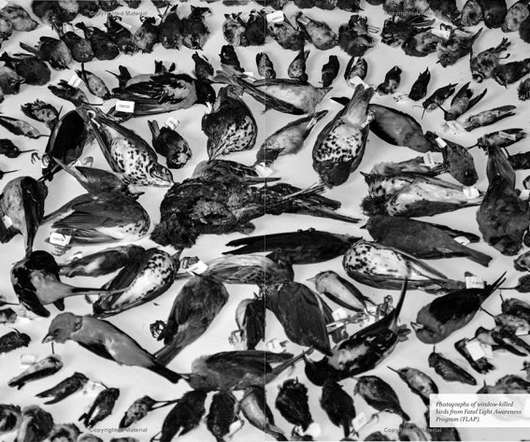Solid Air: Invisible Killer Saving Billions of Birds From Windows–A Book Review
10,000 Birds
JULY 5, 2022
“Bird-friendly design” is becoming a common term in architectural and city planning circles and proponents can point to a successful initiative, the retrofitting of New York City’s Javits Center which reduced bird deaths by 90%. ’s Lights Out DC, to name a few. It’s not a bad idea.

















Let's personalize your content